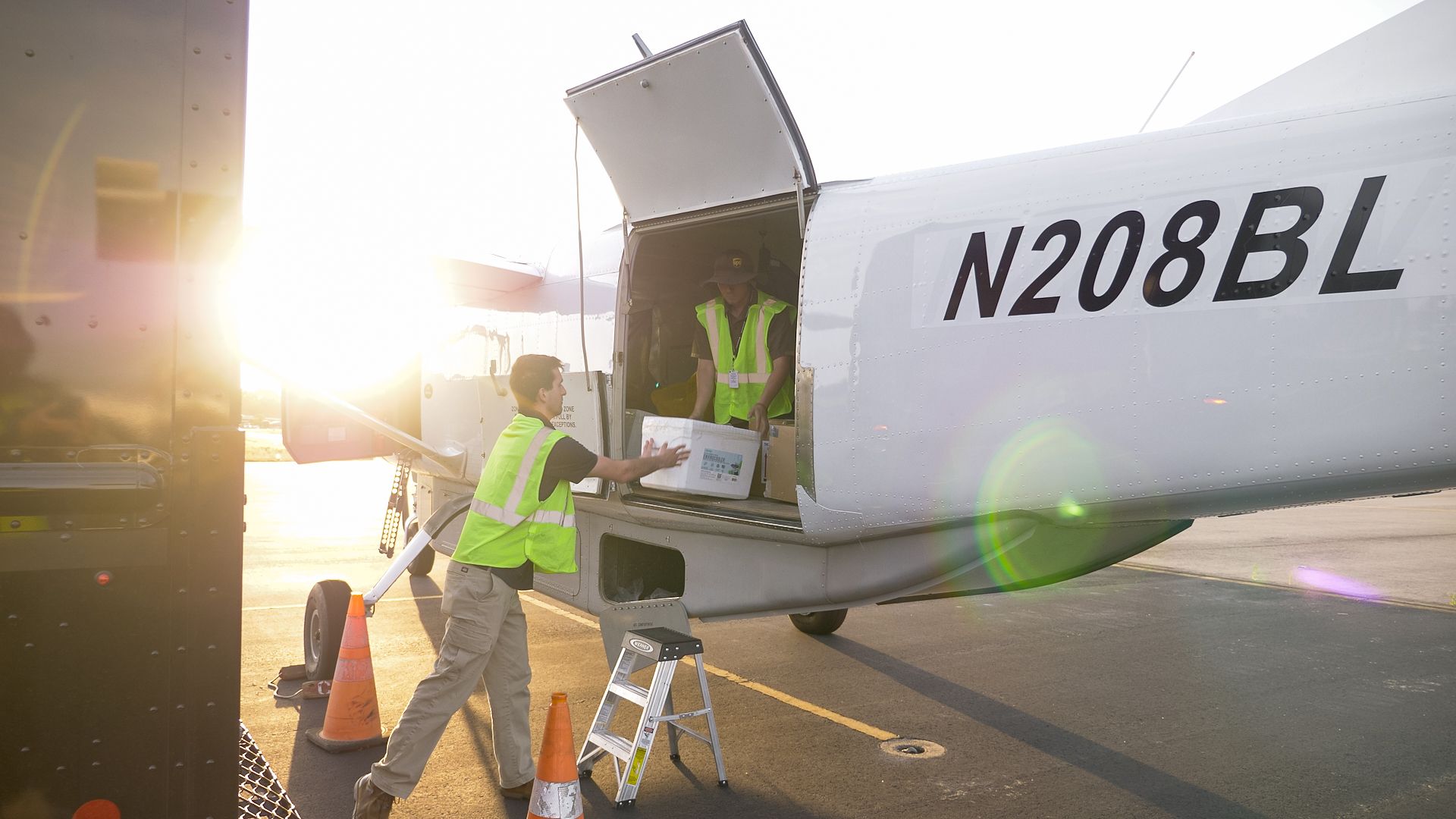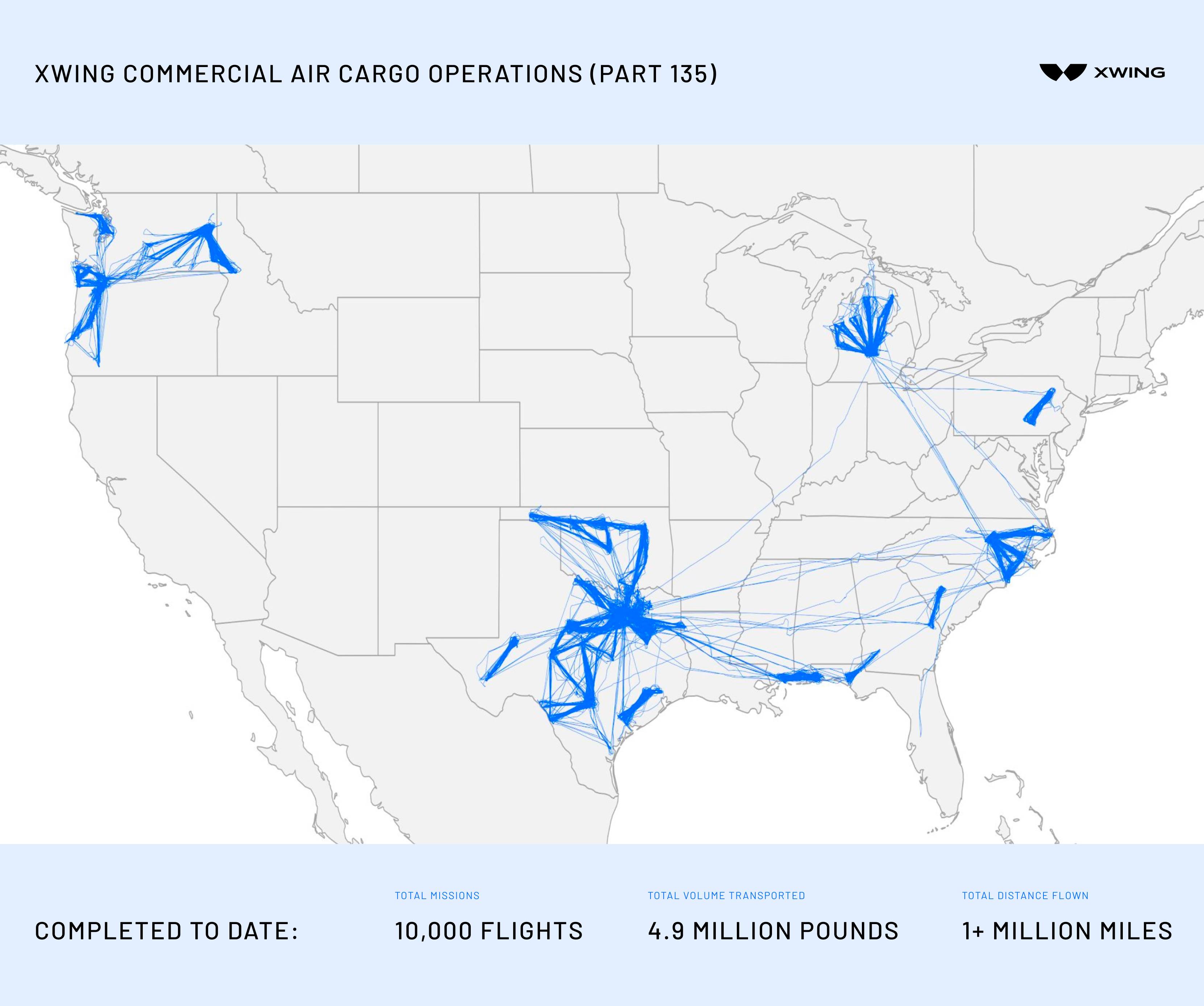Xwing has announced a collaboration with NASA to develop state-of-the-art technology that enables autonomous aviation in the US airspace. Let's look closely at the announced collaboration.
Xwing and NASA together for autonomous aviation
Xwing, the first company to adopt autonomous technology on a regional air cargo aircraft, has announced it will cooperate with NASA to develop processes and procedures to foster autonomous aviation in the US airspace.
Xwing and NASA's announced collaboration builds upon two main objectives:
- Identify risks and hazards and evaluate safety arguments related to runway detection and identification for vision-based landing
- Apply knowledge through data collection and analysis to evaluate techniques and assurance processes for enhanced aircraft localization and Global Positioning System (GPS)
The collaboration, led by NASA's System-Wide Safety Project, aims to create a safety management system that supports routine flights for increasingly-autonomous vehicles and ground systems. The collaboration with Xwing will allow NASA to study the industry by adopting a "bottom-up" approach. Indeed, by working with Xwing, NASA will look closely at the real-world challenges faced by the industry, forging a practical path to develop efficient processes and procedures.
NASA System-Wide Safety (SWS) Project Manager, Misty Davies, commented on the key role automation plays in ensuring safety:
"Emerging aviation relies heavily on advanced automation to ensure safety. We are excited to partner with companies like Xwing who are working to bring novel, safe aviation opportunities to the American public"
How will this collaboration work?
Xwing is a US-based autonomous aviation company. In early 2021, the company operated the first fully-automated cargo flight with a Cessna Caravan retrofitted with the company's technology.
While Xwing continues to develop new autonomous technology, the company is also a large Part 135 air carrier. Its unmodified aircraft fleet operates over 400 weekly flights of routine cargo operations for the logistics leader UPS. Xwing will now share a relevant portion of critical flight and ground operations data obtained through their operations in the National Airspace System (NAS).
Once available in the NAS, Xwing's shared data will be used by NASA's System-Wide Safety (SWS) researchers to validate and evaluate safety management systems for increasingly-autonomous aviation operations. Additionally, by studying the flight and ground operations data shared by Xwing, SWS researchers also aim to assess the risk of emerging Advanced Air Mobility (AAM) operations.
Get the latest aviation news straight to your inbox: Sign up for our newsletters today.
Xwing's collaboration with NASA offers even more than that. Indeed, the company's data, including emergency procedures, airspace communications, and infrastructure needs, will also support NASA Advanced Air Mobility (AAM) researchers to build new infrastructure standards, pilot/operator certification standards, and other industry-related standards. Marc Piette, Xwing's CEO and founder commented on the newly announced collaboration stating:
"Our contract with NASA helps support our certification efforts with the FAA. Our collaboration with NASA covers the sharing of data, algorithms for system safety analysis to aid our advancement of key technologies such as autoland systems, detect and avoid, and more. Overall, we are honored to be working with this prestigious organization as we continue on our path to transforming regional air mobility"
Furthermore, the NASA Aeronautics Research Institute (NARI) might also get involved in the collaboration. Its role would be that of cooperating with Xwing to explore and evaluate potential supply-chain issues that currently hinder the adoption of increasingly-autonomous aviation systems and/or that compromise the safety of operations. Jessee Kallman, Vice President of Commercialization and Strategy at Xwing, is enthusiastic about the announced partnership and believes this will support both companies in achieving a twofold objective: advancing capabilities and building a more robust safety case for the technology.
Misty Davis, NASA System-Wide Safety (SWS) Project Manager, told Simple Flying:
"NASA has several decades-worth of experience in safety assurance techniques for advanced automation. Our role as a trusted partner to both industry and to regulators will accelerate the adoption of enabling technologies for Advanced Air Mobility"
How effective do you think this collaboration will be in developing safe autonomous aviation in the US? Let us know in the comment section below!


.jpg)
